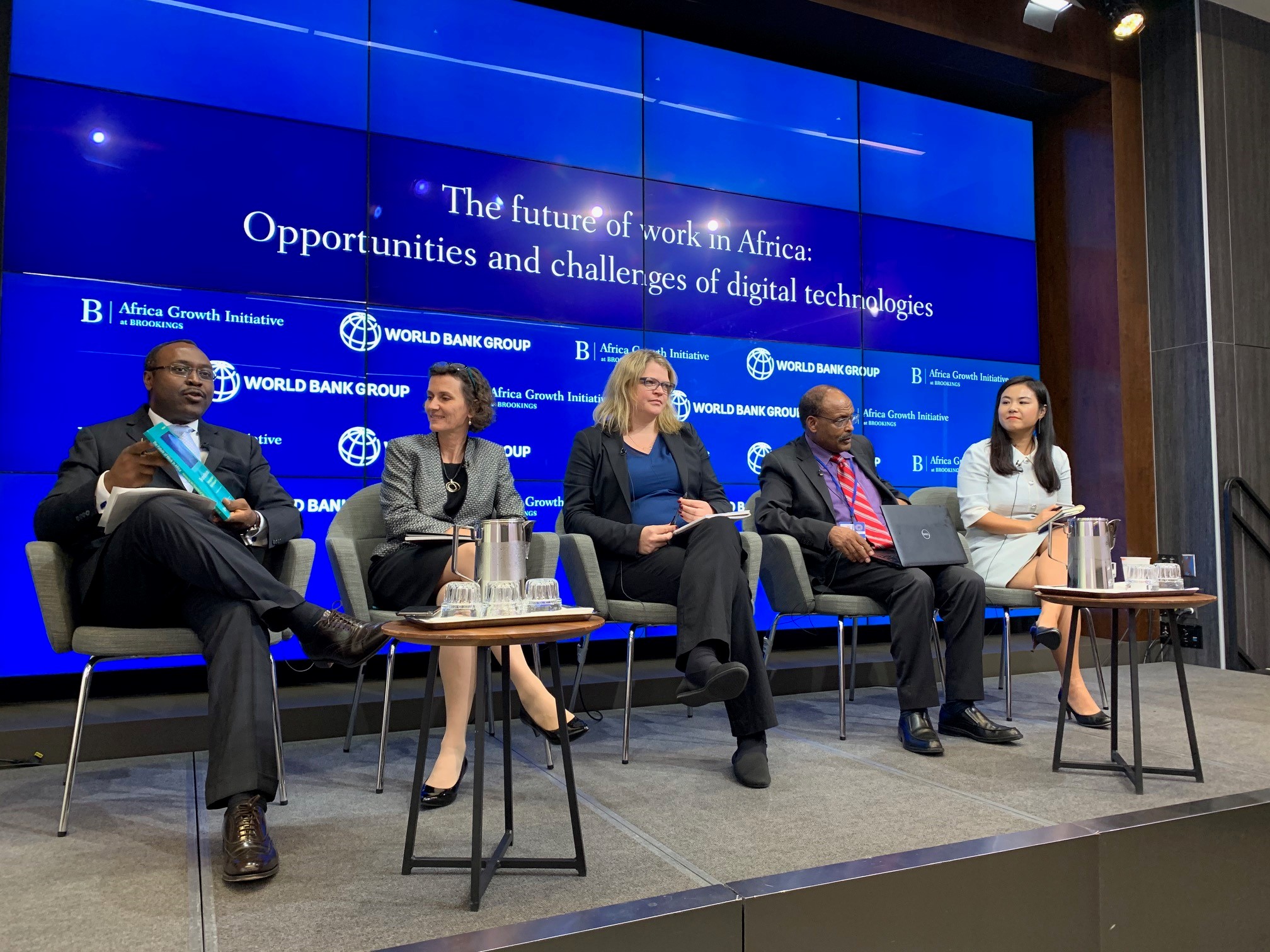Around the world, and especially in Africa, rapid digitization and the spread of new technologies are ushering in a new era of economic disruption. This trend has ignited a global debate about the implications for labor markets and the future of work. So far, the future of work discussion has focused mainly on advanced economies and on industrial jobs, which raises questions about its relevance for low-income countries in general and Africa in particular.
Experts come down on both sides of whether technology in Africa will be good for jobs. Critics are concerned that automation is displacing low-skilled industrial jobs, meaning Africa’s manufacturing sector might not be able to absorb workers as Asia’s did. On the other hand, other experts argue that technological disruptions have been a feature of economic transformation since the first industrial revolution. Similar dire predictions of large-scale job destruction made during previous episodes of technological revolution failed to materialize. Finally, by replacing low-skill manual jobs while acting as a complement to high-skilled workers, modern technologies raise skill premiums, but also increase income inequality.
On Thursday, October 17, the Africa Growth Initiative at the Brookings Institution hosted a discussion with the World Bank on how African policymakers can harness these new technologies to create jobs and grow their economies. The event began with introductory remarks by AGI Director Brahima Coulibaly and World Bank executive director Jean-Claude Tchatchouang, followed by presentations on a new World Bank report, The Future of Work in Africa: Harnessing the Potential of Digital Technologies for All, by a World Bank team. After the presentation, Albert Zeufack, chief economist for Africa at the World Bank, moderated a panel on the key takeaways and policy recommendations of the report.
Opening the discussion, Zeufack highlights that the displacement from digital technologies is expected to be minimal in Africa but the potential benefits are large as these technologies can help increase productivity.
One of the panelists, Mary Hallward-Driemeier,senior economic adviser at the World Bank, discussed the potential for digital technology in the informal sector and its role in Africa’s economic transformation and reducing poverty by creating jobs. She argued that the sectors in which Africa is most active are those least susceptible to automation.
Another panelist, Lemma Senbet, Professor of Finance at University of Maryland and AGI Distinguished Advisory Group member, highlighted that innovation can occur without technology. Policymakers and implementers must understand what it means to innovate in various sectors, especially agriculture in Africa, and what policy environment is needed to foster innovation.
The panelists took questions from the audience after the discussion.
















